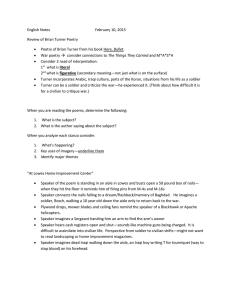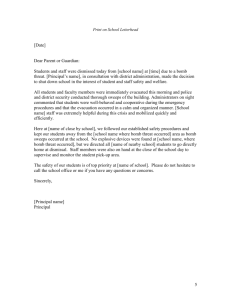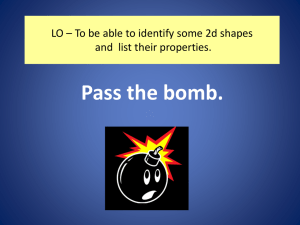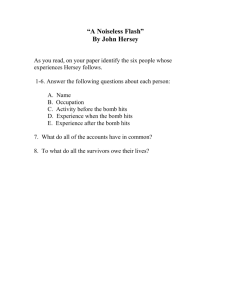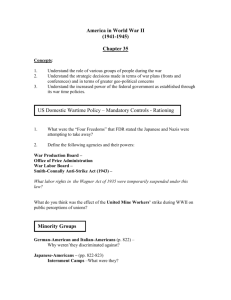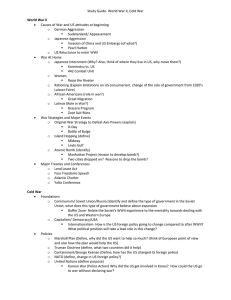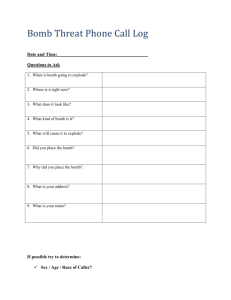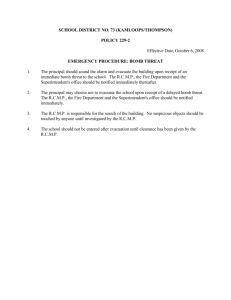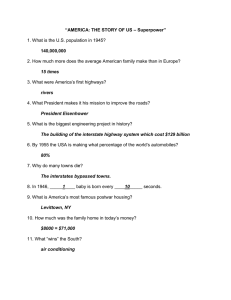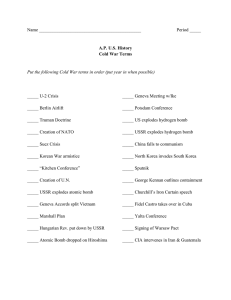English Notes February 26, 2015 Review of Brian Turner Poems “16
advertisement
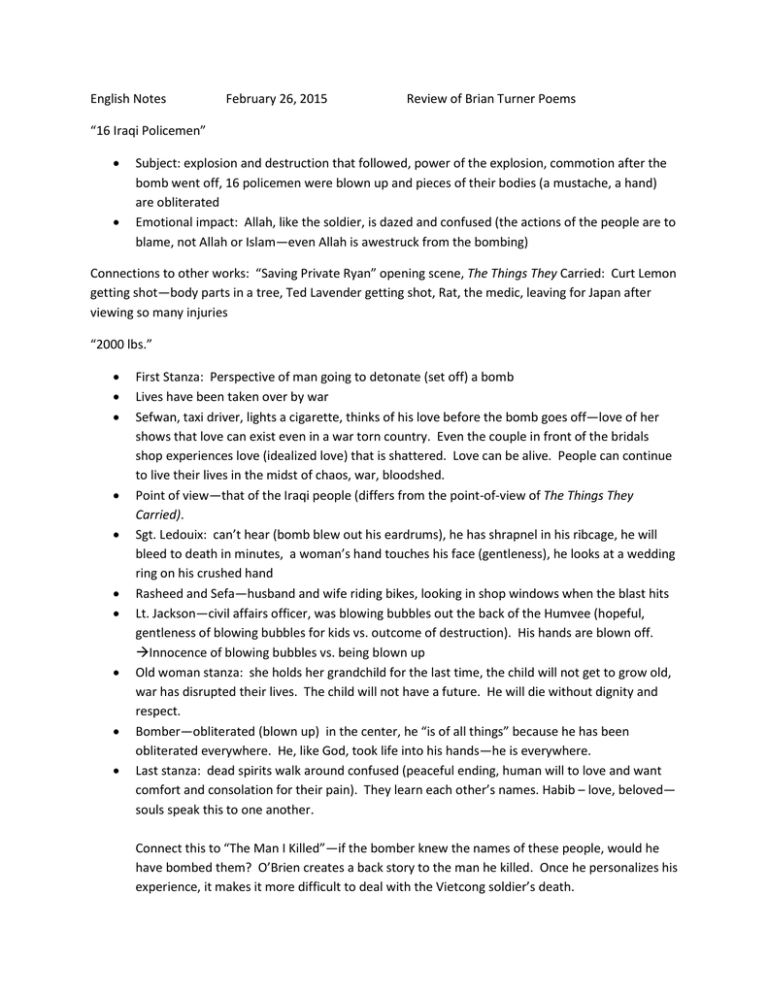
English Notes February 26, 2015 Review of Brian Turner Poems “16 Iraqi Policemen” Subject: explosion and destruction that followed, power of the explosion, commotion after the bomb went off, 16 policemen were blown up and pieces of their bodies (a mustache, a hand) are obliterated Emotional impact: Allah, like the soldier, is dazed and confused (the actions of the people are to blame, not Allah or Islam—even Allah is awestruck from the bombing) Connections to other works: “Saving Private Ryan” opening scene, The Things They Carried: Curt Lemon getting shot—body parts in a tree, Ted Lavender getting shot, Rat, the medic, leaving for Japan after viewing so many injuries “2000 lbs.” First Stanza: Perspective of man going to detonate (set off) a bomb Lives have been taken over by war Sefwan, taxi driver, lights a cigarette, thinks of his love before the bomb goes off—love of her shows that love can exist even in a war torn country. Even the couple in front of the bridals shop experiences love (idealized love) that is shattered. Love can be alive. People can continue to live their lives in the midst of chaos, war, bloodshed. Point of view—that of the Iraqi people (differs from the point-of-view of The Things They Carried). Sgt. Ledouix: can’t hear (bomb blew out his eardrums), he has shrapnel in his ribcage, he will bleed to death in minutes, a woman’s hand touches his face (gentleness), he looks at a wedding ring on his crushed hand Rasheed and Sefa—husband and wife riding bikes, looking in shop windows when the blast hits Lt. Jackson—civil affairs officer, was blowing bubbles out the back of the Humvee (hopeful, gentleness of blowing bubbles for kids vs. outcome of destruction). His hands are blown off. Innocence of blowing bubbles vs. being blown up Old woman stanza: she holds her grandchild for the last time, the child will not get to grow old, war has disrupted their lives. The child will not have a future. He will die without dignity and respect. Bomber—obliterated (blown up) in the center, he “is of all things” because he has been obliterated everywhere. He, like God, took life into his hands—he is everywhere. Last stanza: dead spirits walk around confused (peaceful ending, human will to love and want comfort and consolation for their pain). They learn each other’s names. Habib – love, beloved— souls speak this to one another. Connect this to “The Man I Killed”—if the bomber knew the names of these people, would he have bombed them? O’Brien creates a back story to the man he killed. Once he personalizes his experience, it makes it more difficult to deal with the Vietcong soldier’s death. From Brian Turner’s My Life as a Foreign Country Section 53: Bomb maker—explains what is going on in his head. His emotional center has been hushed. He has to be intense and focused (or he may explode). Bomb maker needs to forget who he is going to harm—this will distract him from his job. His amygdala (emotional center of the brain) is shut off. Bomb is powerful—might make the nightly news or kill 27 others in a market, devastate a traffic circle Bomb maker is dead, goes to hell—he makes a mistake with the explosives. His singing along with the chorus of the Tommy Jones song stops. However, other bomb makers are waiting. “At Lowes Home Improvement Center” Speaker of the poem is standing in an aisle in Lowes and busts open a 50 pound box of nails— when they hit the floor it reminds him of firing pins from M-4s and M-16s Speaker connects the nails falling to a dream/flashback/memory of Baghdad. He imagines a soldier, Bosch, walking a 10 year old down the aisle only to return back to the war. Plywood drops, mower blades and ceiling fans remind the speaker of a Blackhawk or Apache helicopters. Speaker imagines a Sergeant handing him an arm to find the arm’s owner Speaker hears cash registers open and shut—sounds like machine guns being charged. It is difficult to assimilate into civilian life. Perspective from soldier to civilian shifts—might not want to read landscaping or home improvement magazines. Speaker imagines dead Iraqi walking down the aisle, an Iraqi boy writing T for tourniquet (way to stop blood) on his forehead.
